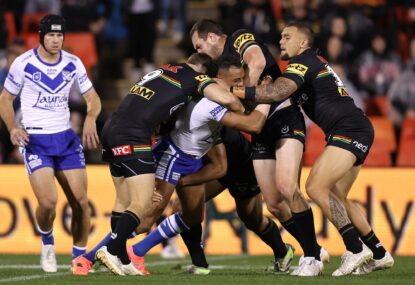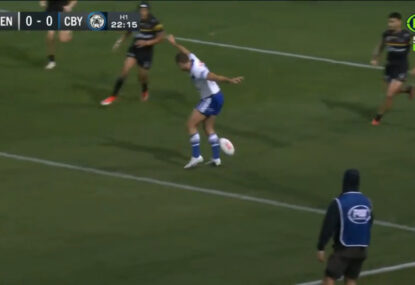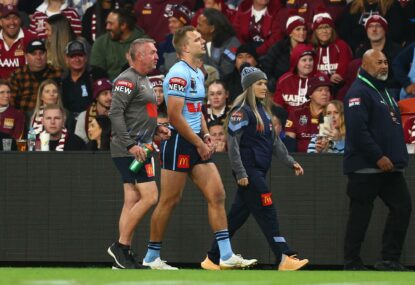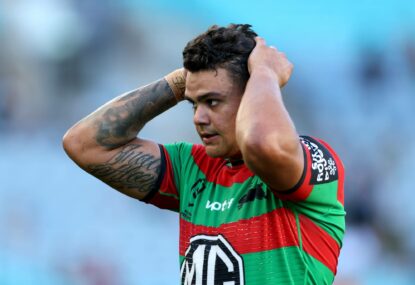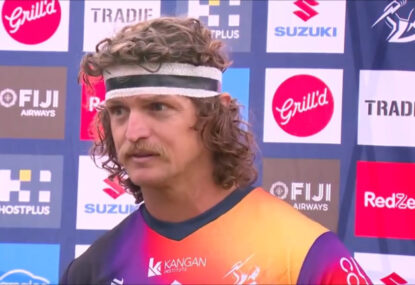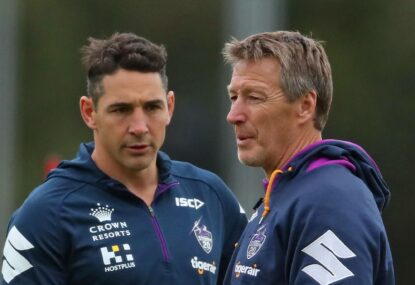Assuming Peter V’landys saves rugby league from penury and looks back on a triumphant season completed against the odds, his successor might then consider what the sport should be.
For all the squillion-dollar player and media contracts, it’s still a sport.
A blueprint could be drawn up. The new start would see no school and weekend competitions until, say, age 11.
At the extreme, you then wouldn’t have a proud father of a son with a black eye saying it would make a man of the five-year-old, though it may scar the child for life.
It might conclude by saying there’s no point in having seven-year-old Pacific Island children four times bigger than the opposition monstering other teams. Plenty of time to kick a ball around in the park and have non-regimented fun.
When team play starts, an over and under weights system similar to that employed in New Zealand could apply. That way smaller players and their parents mightn’t be lost to the game.
It might be remembered Penrith coach Ivan Cleary has said he wouldn’t have allowed his son, halfback Nathan, to play without the system in operation, because he was too small to compete with the bigger boys when they were in New Zealand.
If a young giant still dwarfs the others, he can wait until he’s 14 or 15. It’s not too late to make up time.
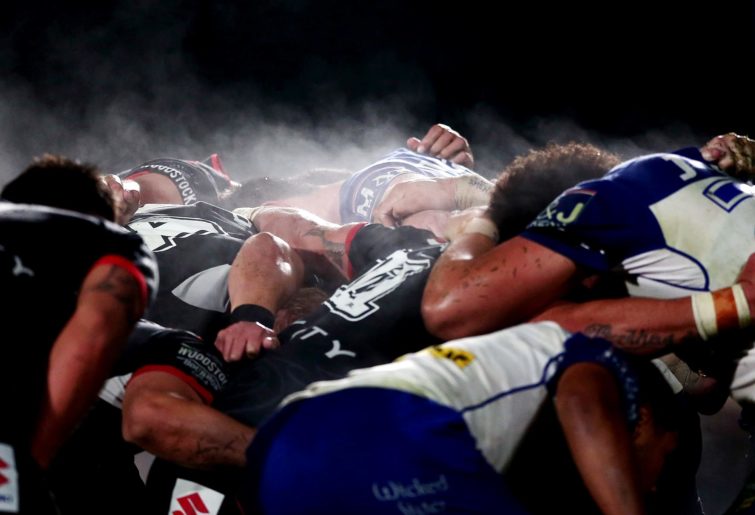
(Anthony Au-Yeung/Getty Images)
Restrict school matches to zones and scrub elite competitions. Then scouts won’t haunt surrounding districts, vacuuming up players and waving school fees, and cliques won’t walk around school boasting they’re only there to play football.
Then schools wouldn’t have many more players than they need, with some boys unable to get a game.
Football should be a secondary part of secondary school education. It should be, but for many budding football stars it isn’t. They’ve already been signed to clubs virtually from the cradle.
How to make education the real winner? Getting rid of sports high schools would be a start. For many of those potential stars school lessons are just hours to be endured before football, future riches and stardom and living happily ever.
They don’t realise it isn’t that simple. Many aspire but few are chosen, and many of that smaller number are ill-equipped to cope with the pressure of life post-sport.
Their one great talent hasn’t prepared them for that, and the Mickey Mouse courses football clubs are now playing catch-up with are no substitute for an earlier education and an acquaintance with reality.

(AAP Image/Dan Himbrechts)
Watch some weekend teams of 14-year-olds prepare for a game and see them mimic NRL warm-ups that are almost as long as the match.
See trainers run on, loading players up with instructions during breaks in play. Keep them off the field.
Where’s playing what’s in front of you, testing individual skills, risking mistakes? Where’s the fun?
There are those weekend games and NRL club junior representative competitions for the gifted players. Plenty of games for scouts to view.
Ban NRL clubs from signing players until the budding stars turn 18. Make prospective signees pass a basic numeracy and literacy test.
Fail and they come back the next season. That will state the importance of school.
Speak to NRL player managers and hear stories of coddled players ringing with complaints like, “My car’s broken down”.
Response: “Call the NRMA.”
Remember the Super League war and beneficiaries signing inflated contracts and wasting the money on toys – money that could have been invested for when retirement arrived.
Such unworldliness is unsurprising when the players who make it often go from school to the big time without knowing a day’s work.
Former Canberra and Newcastle prop Luke Davico once spoke of staring into the abyss of retirement with terror. He’s doing okay.
Former Manly captain Jason King took double the time to qualify as a lawyer because of the demands of being a full-time professional.
King said combining the two was exhausting but provided a break from an environment in which for some players the only topic of conversation was rugby league.
Time was when there were doctors like Bill Roney, George Peponis, Nathan Gibb and Martin Raftery, lots of lawyers and schoolteachers and a civil engineer like the late Greg Pearce playing rugby league. And the tradies.
Such academic pursuits can’t be combined with an NRL career now, the game’s demands are too great.
Or are they?
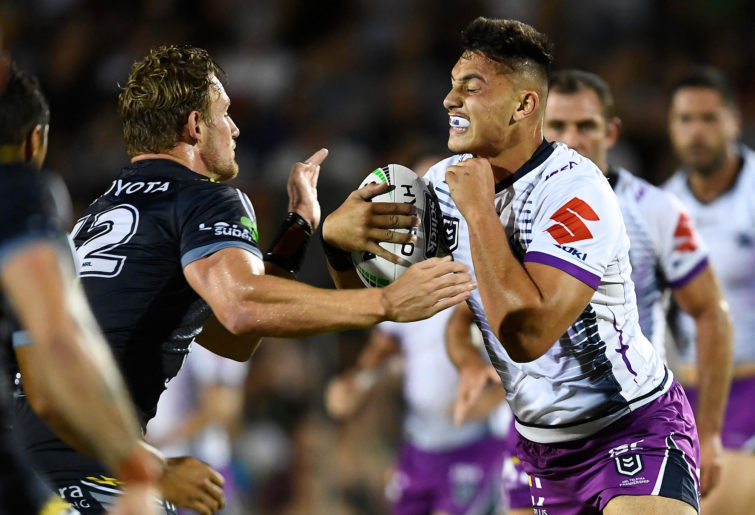
(Ian Hitchcock/Getty Images)
The great Mick Cronin has said he couldn’t have imagined training every day. Players would have been sick of the sight of each other.
Surely there’s some elasticity there? Who is benefitting from such regimentation? The players?
Have non-studying recruits do some work, like sweeping floors, cleaning toilets or volunteering – any work a day a week in their first season. That should help keep feet on the ground and stars out of the eyes.
If players weren’t so unworldly, they mightn’t need the managers who proliferate.
Like those in the wider world considering a job, they might find the club where they feel comfortable and the money acceptable and have a lawyer look over the contract’s fine print.
The ones in demand for media and promotions could employ a secretary part-time to sift through proposals.
Few sportspeople can also be a Dr Peponis, Gibbs or Raftery. For many, being elite footballers is the one great talent they were given. Like those in the arts, it’s how they express themselves creatively.
The game owes them more than the prospect of money and the chance to be winners. It must educate them that during their playing days football might be the primary thing but that there’s a greater thing called life post-football.
“Winning isn’t everything; it’s the only thing,” said American football coach Red Sanders.
“Football isn’t a matter of life or death; it’s much more important than that,” said Scottish-born Liverpool soccer coach Bill Shankly.
For “winning” and “football” substitute “education”.
In the broad sense education is always the answer. But can this blueprint be employed?
Not a chance. Rugby league isn’t a sport, it’s a business, and there’s money at stake.
































































































